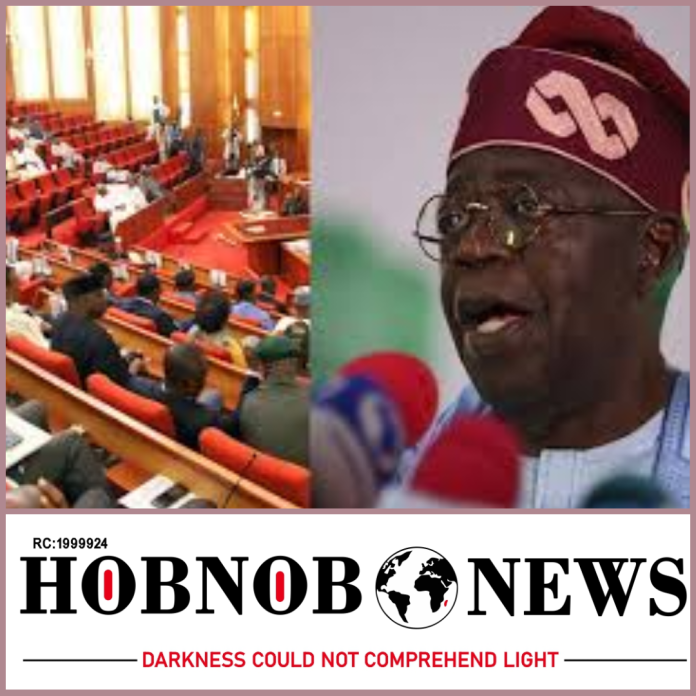In a significant turn of events, the Senate has granted approval for President Bola Tinubu’s proposed borrowing plan for the years 2022-2024, which amounts to a staggering $7.8 billion and 100 million euros. This decision marks a pivotal moment in Nigeria’s economic landscape and showcases the government’s determination to fulfill its developmental commitments.
With the nod from the Senate, President Tinubu can now proceed to secure external financial assistance to further drive key infrastructure projects, bolster the economy, and stimulate growth across various sectors. The borrowing plan sets the stage for transformative developments, spanning crucial areas such as transportation, energy, healthcare, education, and more.
Simultaneously, the Senate has also approved the nomination of 10 Resident Electoral Commissioners (RECs) for the Independent National Electoral Commission (INEC). These RECs play a vital role in ensuring smooth and transparent electoral processes across the nation. The confirmation of these appointments reflects the Senate’s commitment to strengthening Nigeria’s democratic institutions and facilitating free and fair elections.
Furthermore, the Senate has given its seal of approval to seven of President Tinubu’s nominees as Resident Electoral Commissioners. These commissioners will be instrumental in upholding the integrity of the electoral process within their respective regions. However, it is worth noting that three nominees were absent during the screening process and their consideration will be held in abeyance until their presence can be ensured.
The Senate’s endorsement of the borrowing plan and the confirmation of key electoral appointments is expected to have far-reaching impacts on Nigeria’s socio-political landscape. This decision showcases a collaborative effort between the executive and legislative arms of the government to realize President Tinubu’s vision for a prosperous and transparent Nigeria.
As the borrowing plan unfolds and electoral reforms take shape, all eyes will be on the implementation process, ensuring transparency, accountability, and effective utilization of borrowed funds. The Senate’s role in scrutinizing the plan demonstrates a commitment to responsible governance and oversight, aiming to safeguard the interests of the Nigerian people.
With these recent developments, Nigeria enters an exciting phase of advancement, poised to tackle critical challenges, expand infrastructure, and consolidate its democratic foundations.

